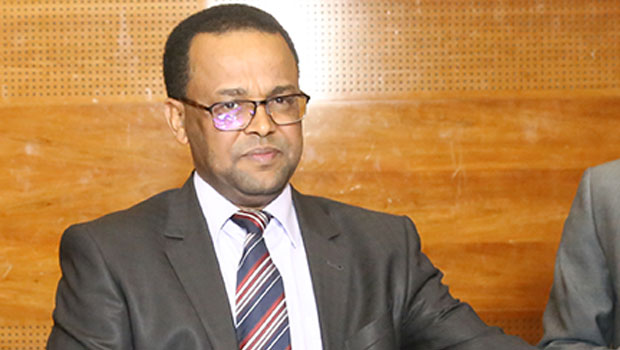
As Ethiopia dives deeper into the interest-free financial landscape, insurance industry insiders indicate a lack of enabling policy frameworks, a dearth of competent experts and a general lack of awareness in the public as enduring challenges of growth.
During the three-day "5th Global Takaful, ReTakaful and Interest-free Banking Forum" held at the Inter-Luxury Hotel, experts from around the world gathered to discuss prospects and hurdles for the budding industry.
The Takaful insurance system, which allows members to pool funds to cover each other's losses, had a modest share of 127 million Br, a 0.5pc share from the total gross written premiums of the industry, which had close to 23 billion Br last year.
Less than half of Ethiopia's 18 insurance companies have vibrant Sharia-compliant departments that actively provide Takaful insurance services as a window operator, with the Wakalah model dominating and none offering family Takaful services.
Global Insurance's Ahli Takaful which pioneered the service in the country, has the largest market share at 45pc followed by Awash Bank's Salaam Takaful at 31pc, Oromia Insurance's Halal Takaful 16pc and Nile Insurance's Aman Takaful at 8pc.
Insurance broker and consultant Assegid Gebremehdin points out a pervasive lack of awareness among potential policyholders who conflate the interest-free insurance service as merely catering to followers of the Islamic religion.
"Ethiopia's insurance industry is in its infancy with Takaful barely making a mark," he told Fortune. There are close to 700 branches of insurance companies in the country, of which a little over half are located in Addis Abeba.
Asegid says the general aversion to purchasing insurance in the country is much worse in the Takaful market segment. It has been two years since the National Bank of Ethiopia paved the way for Takaful insurance through a directive for licensing of operations.
"An aggressive marketing strategy to create awareness is essential," the former deputy CEO of Global Insurance noted.
Asegid explains that the Takaful service has nothing to do with religion; the name merely indicates its governance according to Sharia-compliant principles.
"It's open to all," he underscored.
Assegid recommends the establishment of full-fledged Takaful insurance companies instead of the window service single-department approach currently in practice to take advantage of the vast market potential.
He also acknowledged that challenges in proper Takaful accounting practices, adequate technology infrastructure and rating companies remain obstacles to the industry's growth.
"Most companies use Takaful as a customer retention strategy," says Fikru Tsegaye, Executive Officer of Strategy and Business Development of Ethiopian Reinsurance S.C.
He points out that most insurance companies don't have sufficient experts who either understand or recognize the potential of the interest-free financial products market.
"It is difficult to find people who understand Takaful even in the currently employed workforce," Fikru told Fortune.
He stresses the need for close collaboration between higher education institutions and the financial industry to recruit a higher number of qualified experts who can work in the sector.
"Sharia-compliant principles remain an elusive concept for most," Fikru stated.
Muhammad Zubair, CEO of AlHuda Center of Islamic Banking and Islamic Economics (CIBE), suggested that the legal framework for the interest-free financial landscape in Ethiopia is restrictive, especially in Takaful.
He insisted that enabling policies that allow for stand-alone Takaful insurance companies needs to be pushed by stakeholders instead of the window operation model. "Broadening the investment arena will be critical," Muhammad noted.
He recommends the expansion of Sharia-compliant bonds like Sukuk in which interest-free financial institutions can participate as part of a broad interest-free ecosystem. The Al Huda Center, the first consultancy firm to conduct a feasibility study on interest insurance products over a decade ago, has 100 Ethiopan students enrolled in different Islamic banking and finance programs.
Officals from the National Bank of Ethiopia(NBE) also recognized the potential of the interest-free landscape and the small size of the insurance industry in Ethiopia, which has a penetration rate of around 1pc.
Solomon Desta, Vice Governor of the NBE and financial institutions supervision, revealed ongoing discussions to introduce Sukuk bonds and other Sharia-compliant financial instruments as an alternative to treasury bills and bonds.
He says there is a clear understanding of the role of interest-free modalities in the creation of a vibrant financial landscape.
"We are working to accommodate financial institutions that only provide interest-free services more and more," he told Fortune.
PUBLISHED ON
Nov 25,2023 [ VOL
24 , NO
1230]

Radar | Jan 09,2024

Fortune News | Sep 03,2022

Sunday with Eden | Aug 25,2024

Radar | Jan 16,2024

Fortune News | Apr 28,2024

Fortune News | Jun 18,2022

Films Review | Nov 21,2018

Radar | Feb 03,2024

Fortune News | Sep 10,2022

Radar |

Dec 22 , 2024 . By TIZITA SHEWAFERAW
Charged with transforming colossal state-owned enterprises into modern and competitiv...

Aug 18 , 2024 . By AKSAH ITALO
Although predictable Yonas Zerihun's job in the ride-hailing service is not immune to...

Jul 28 , 2024 . By TIZITA SHEWAFERAW
Unhabitual, perhaps too many, Samuel Gebreyohannes, 38, used to occasionally enjoy a couple of beers at breakfast. However, he recently swit...

Jul 13 , 2024 . By AKSAH ITALO
Investors who rely on tractors, trucks, and field vehicles for commuting, transporting commodities, and f...

Jun 28 , 2025
Meseret Damtie, the assertive auditor general, has never been shy about naming names...

Jun 21 , 2025
A well-worn adage says, “Budget is not destiny, but it is direction.” Examining t...

Jun 14 , 2025
Yet again, the Horn of Africa is bracing for trouble. A region already frayed by wars...

Jun 7 , 2025
Few promises shine brighter in Addis Abeba than the pledge of a roof for every family...